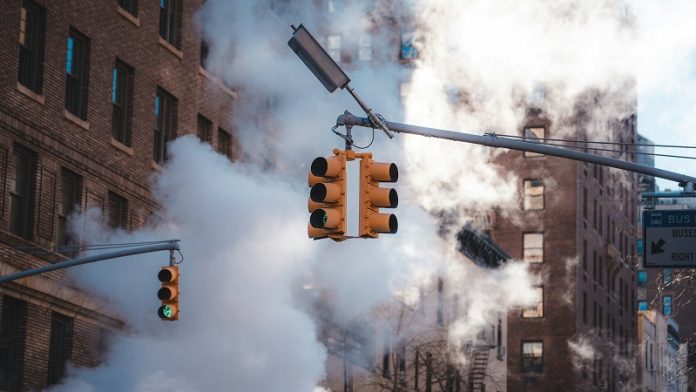
New research reveals that exposure to air pollution may increase the risk of experiencing long-lasting symptoms of long-COVID.
The study, conducted by the Barcelona Institute for Global Health (ISGlobal) in partnership with the Germans Trias i Pujol Research Institute, highlights how air pollutants like PM2.5 and PM10 could play a role in the persistence of long-COVID symptoms.
The findings were published in the journal Environmental Health Perspectives.
What is long-COVID?
Long-COVID is a condition where people experience symptoms such as fatigue, breathlessness, and trouble concentrating for months after recovering from COVID-19.
These symptoms often cannot be explained by other illnesses.
It is estimated that millions of people worldwide are affected, but the condition is still not fully understood. Even individuals who had mild or no symptoms during their initial COVID-19 infection can develop long-COVID.
Previous studies have shown that air pollution can increase the severity of COVID-19 and reduce vaccine effectiveness. However, there has been little research on how environmental factors, including pollution, affect long-COVID.
In this study, researchers analyzed data from over 2,800 adults in Catalonia, aged 40 to 65, who participated in the COVICAT cohort study. Participants completed surveys in 2020, 2021, and 2023, providing information about their COVID-19 infections, vaccination status, health, and other factors.
The researchers estimated participants’ exposure to air pollution, noise, green spaces, and artificial light at night.
The study found that one in four people who had COVID-19 experienced symptoms lasting three months or longer, and 5% reported symptoms persisting for over two years.
- Women, people with lower education levels, those with pre-existing health conditions, and individuals who had severe COVID-19 were at the highest risk of long-COVID.
- Vaccination reduced the risk significantly: only 15% of vaccinated participants developed long-COVID, compared to 46% of unvaccinated participants.
Exposure to particulate matter (PM2.5 and PM10) was linked to a small but noticeable increase in the risk of persistent long-COVID symptoms. The greater the exposure to air pollution, the higher the risk. However, other environmental factors, such as green spaces or traffic noise, had little effect.
How does air pollution affect long-COVID?
The researchers suggest that air pollution may not directly cause long-COVID but could worsen the severity of the initial COVID-19 infection. This increased severity might then raise the risk of developing persistent symptoms.
The study’s authors call for more research to better understand how environmental factors, like air pollution, influence long-COVID. “As more people recover from COVID-19, it’s crucial to explore its potential long-term effects and the role of environmental factors,” said lead researcher Manolis Kogevinas.
This study underscores the importance of addressing air pollution as a public health issue, especially in light of its potential impact on long-COVID and other health conditions.
If you care about COVID, please read studies about vitamin D deficiency linked to severe COVID-19, death, and how diets could help manage post-COVID syndrome.
For more health information, please see recent studies that low-sodium plant-based diets may prevent COVID-19 better, and results showing zinc could help reduce COVID-19 infection risk.



